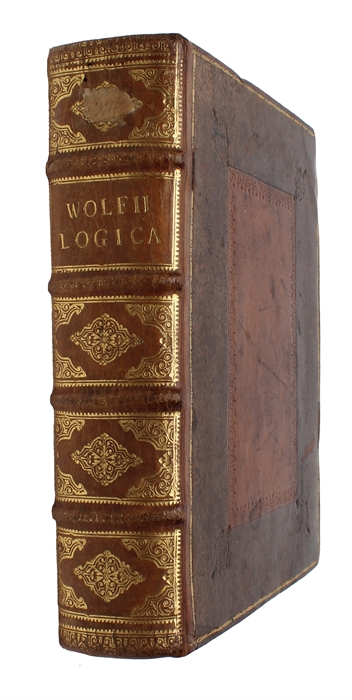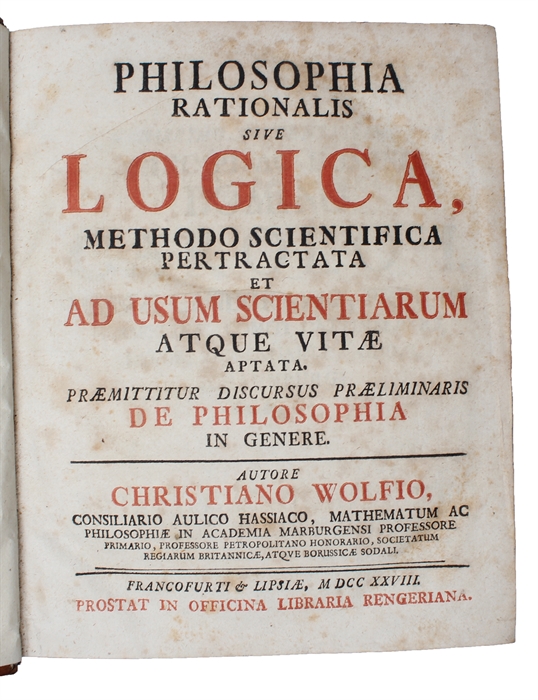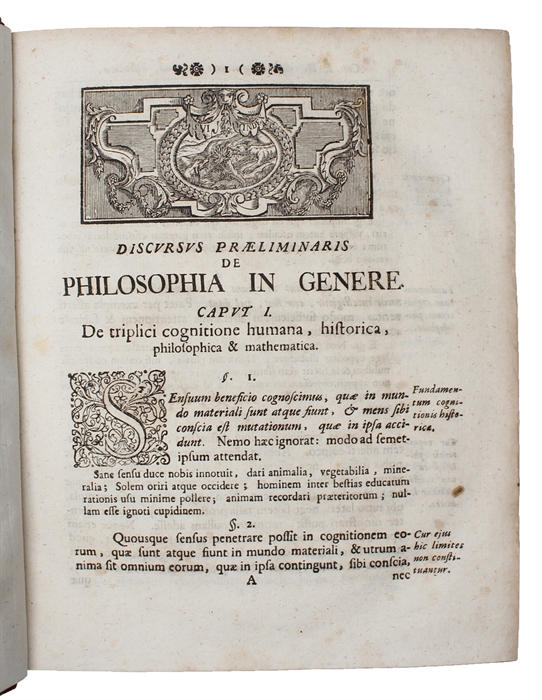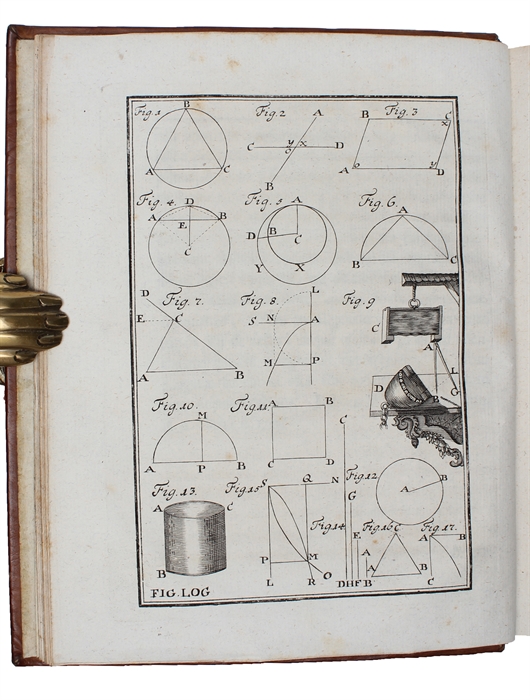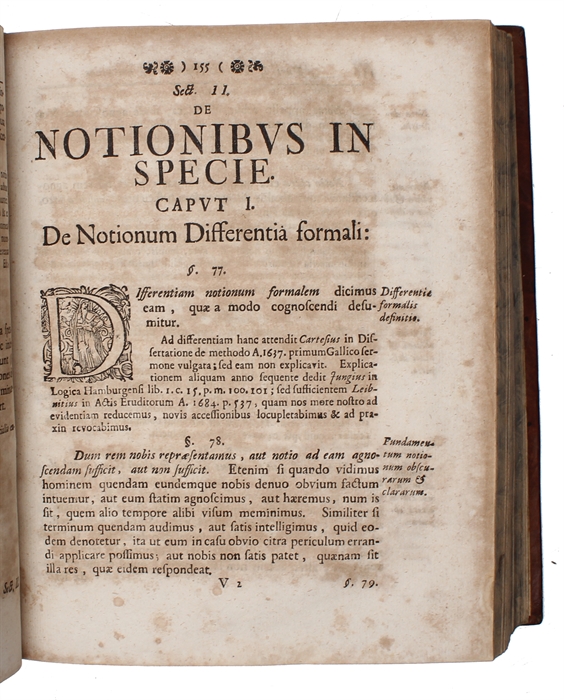WOLFF'S IMPORTANT FIRST LATIN-LANGUAGE WORK
WOLFF, CHRISTIAN.
Philosophia rationalis sive logica, methodo scientifica pertractata et ad usum scientiarum atque vitae aptata.
Frankfurt & Leipzig, Renger, 1728.
4to. In a nice contemporary Cambridge-style mirror binding with four raised bands and richly gilt spine. Small paper-label pasted on to top of spine. Light wear to extremities. Internally with occassional heavy toning due to poor paper quality, otherwise a good copy. (16), 866, (19) pp. + 1 plate.
The uncommon first edition of one of Wolff’s main work in which he presented his concept of philosophy as a total science following Descartes’ belief that all science could be deduced from simple principles. In the history of logical reasoning, methodology, principles of logical inference, the classification of propositions and the structure of logical arguments it still stands as a highly important work. To reach a broader audience Wolff decided to published his works in Latin, the present being his first Latin-language publication. “Christian Wolff (1679–1754) was a philosopher, mathematician, and scientist of the German Enlightenment. He is widely and rightly regarded as the most important and influential German philosopher between Leibniz and Kant. His scholarly output was prolific, numbering more than 50 (most multi-volume) titles, in addition to dozens of shorter essays and prefaces and nearly 500 book reviews. Through his series of textbooks, published first in German and then in Latin, Wolff made signal contributions to nearly every area of philosophical investigation of his time, including but not limited to logic, metaphysics, ethics, political philosophy, and aesthetics. Wolff is perhaps best known in his role as (co-)founder of the “Leibnizian-Wolffian philosophy”, and while Wolff himself rejected the term, the philosophical system it designates quickly gained broad, if not universal, acceptance within German universities in the first half of the eighteenth century.” (Stanford Encyclopedia of Philosophy).
Order-nr.: 60934

